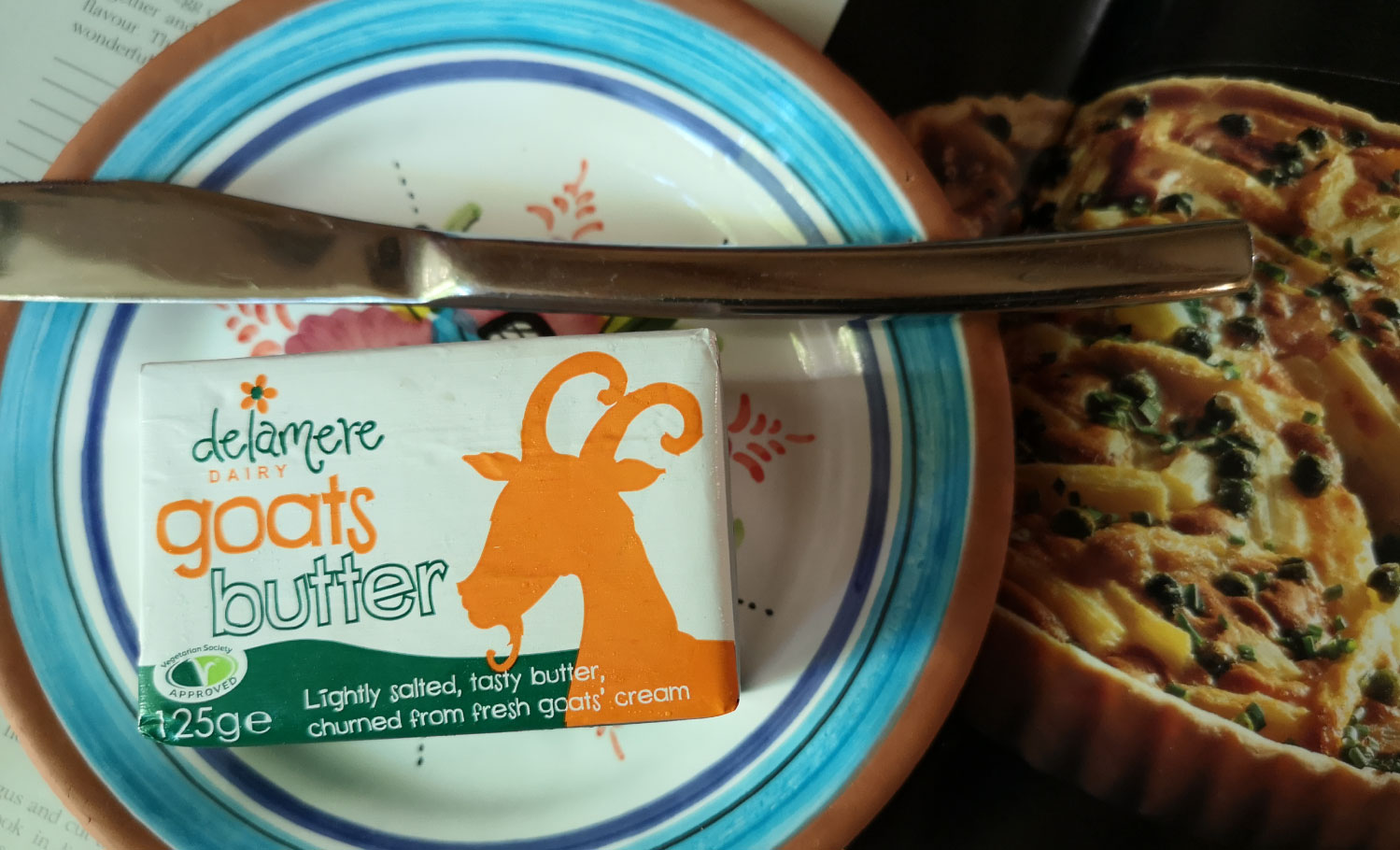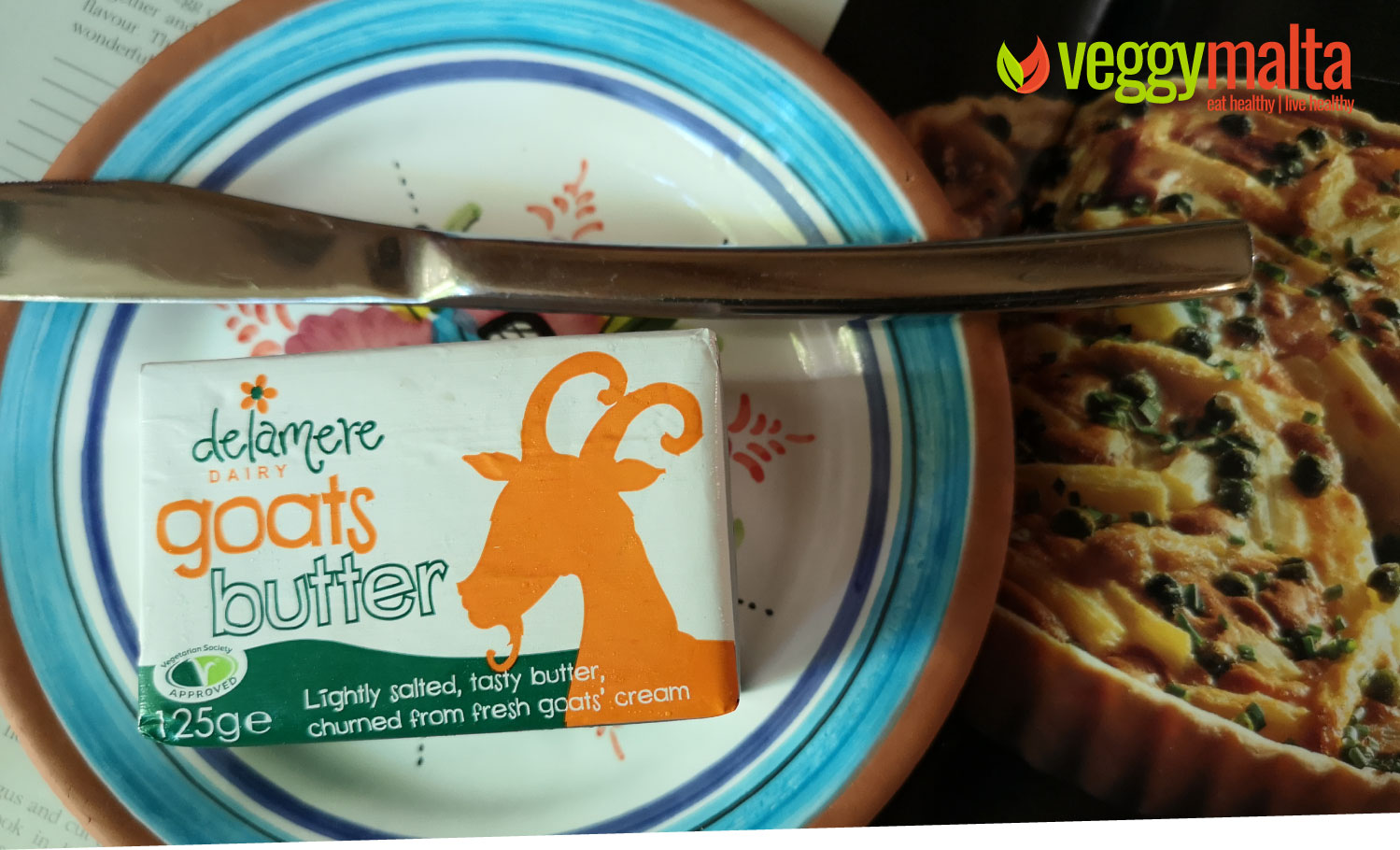Whilst we are a vegetarian site (more broadly defined as lacto-ovo vegetarian site) I am not a big advocate of cows’ milk, for various reasons. Having said this, whilst not so popular on our side of the world, goats’ milk is widely popular in the rest of the world. So if butter is your choice, it would be worth considering goats’ butter versus cows butter. It can be used in the same manner as cows’ butter. Yet what’s all this fuss over goats’ milk and products?
I have tried Delemere’s goats’ butter which also is approved by the Vegetarian Society. Now some might be surprised by the Vegetarian Society’s seal of approval on a dairy product, yet there is a reason. Unlike milks, dairy products like cheese, butter etc can contain animal rennet (a biding agent made from the stomach of slaughtered newly-born calves). Alternatively vegetarian cheeses and dairy products use rennet made from fungal or bacterial sources. The seal is a guarantee that vegetarians can eat it.
Moving on though from that. Why are goats’ milk products gaining popularity? Why should you prefer to use Delamere’s goats’ milk butter versus traditional cows’ milk butter?
Essentially, goats’ milk is easier to digest. Both milks have a similar fat content yet the fat globules in goat milk are smaller, making it easier for your body to digest. [1] This makes it easier to digest with less irritation than cow milk. Additionally goats’ milk and products are lower in lactose. It also has fewer allergenic proteins than cows’ milk which contains A1 casein, versus A2 casein found in goats’ milk. Some studies state that it is the closest milk to human breast milk. [2]
Some other pluses include high levels of calcium (higher than cow milk), along with high levels of Vitamin A. Furthermore some early studies have found that nutrients like iron, calcium, magnesium and phosphorous were more easily digested and used by the body in goats’ milk than cow milk. [3]
Delamare Goats’ Butter is imported locally by Quality Foods Marketing Ltd.
Disclaimer: The information and content on this site is intended to be of general informational use. It is not intended to constitute medical advice, medical diagnosis, or medical treatment. You should always consult your doctor or other health care professional before making any changes in your diet, exercise pattern or lifestyle.




